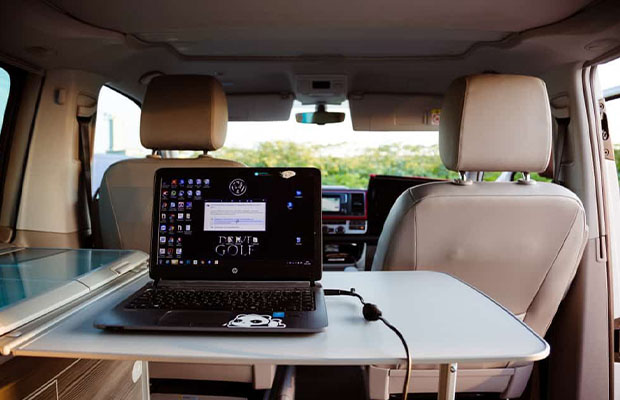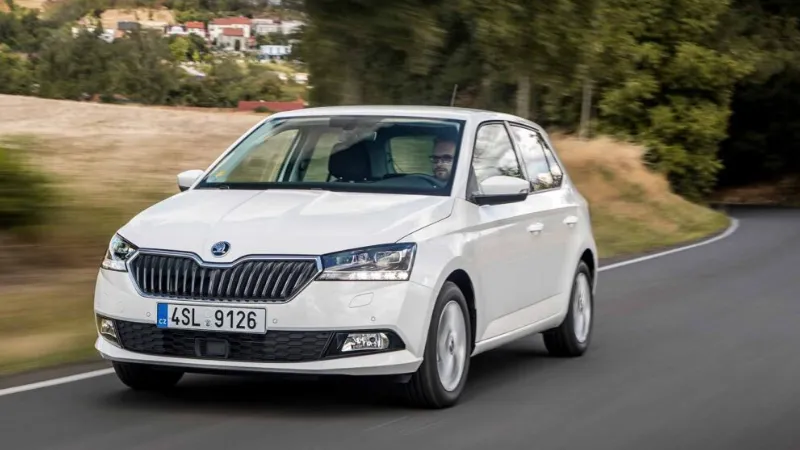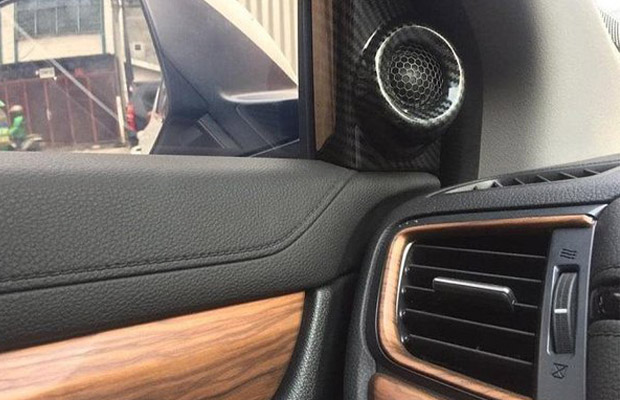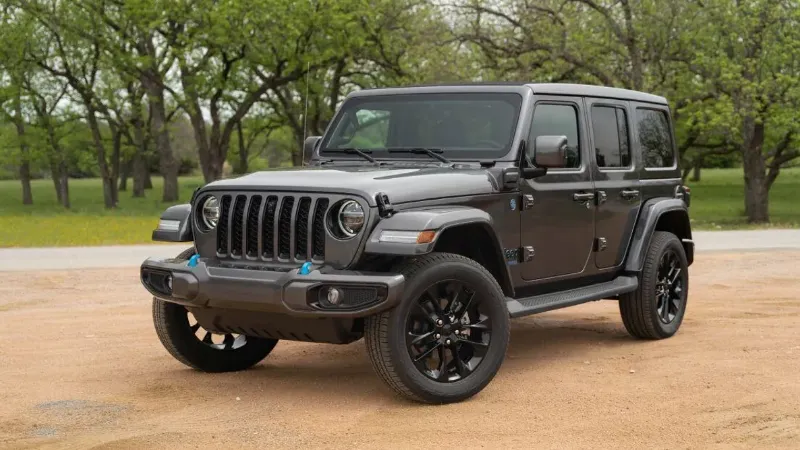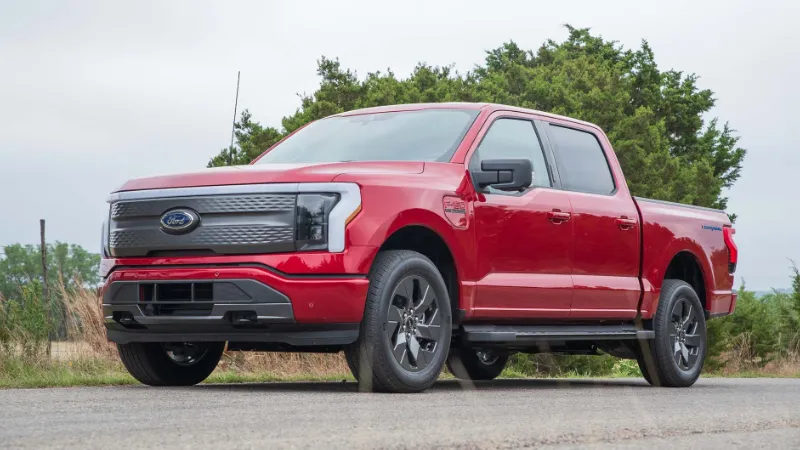People who live in their cars are becoming a larger and larger population. When choosing your vehicle, you have a lot of choices.
Your lifestyle and adventure, as well as the way you drive, will be unique from others. There is no single best vehicels to live in. Everything depends on how and for what purposes you plan to use your car.
We’ve compiled a list of the best cars to live in that people who chose mobile living have used most frequently and successfully.
Read More: Best Cars For Surfers
Top List Of Best Cars To Live In
- The Van
- Camper Van
- Kombi/classic
- Minivans
- Truck Bed Shell
- THE CAR
- SUV/4WD
- Pickup Truck Camper/Trailer
- The Unimog
- The School Bus
- Sedans
- The RV: Class A
- The RV: Class B
- The RV: Class C
Best Car To Live In: Review
1. The Van
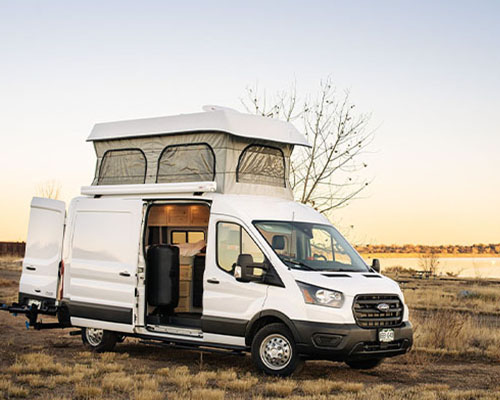
Instagram users who live the mobile lifestyle are fond of this iconic Van Life vehicle. You’ll find a wide selection of vans to choose from, ranging from entry-level beaters to extravagant six-figure adventure rigs. It is ideal for those who are just starting out because it is frequently the most affordable choice. There are many different vans available, so picking the best one for you can be both confusing and enjoyable!
Pros
- They are great to convert into a custom-built camper van
- Due to their widespread use by courier services and industries worldwide, cargo vans are ubiquitous.
- Due to their popularity, they are usually sold for a good price and parts are readily available and easy to find
- In general, repairs are simple, especially on vintage cars without sophisticated electronics.
- Higher security due to fewer windows
- Stealth camping can be easier (depending on external setup and decals)
Cons
- Limited light due to limited windows
- All panel van camping interiors have to be custom built
- Used cars especially those used in the trade can be quite damaged and have a high mileage
- Not a lot of character
- Oh, and don’t forget that you will also need to construct a complete campervan water system, a propane system, and a badass off-grid electrical system. But don’t worry; we can assist you in figuring out how to do all of that.
2. Camper Van
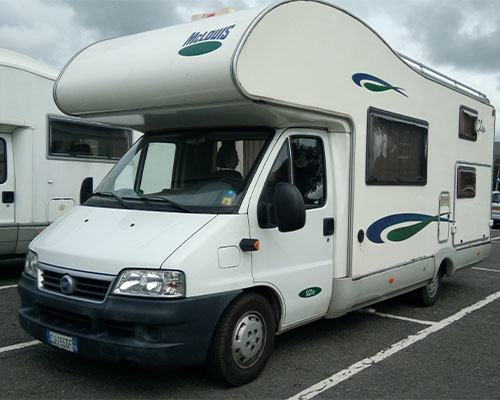
You don’t want to bother with building a van from scratch. Fortunately, there are many pre-built campers available that only need a little customization. See what our friends did when they converted a $6000 Syncro to be the ultimate long-range – grid camper.
Pros
- everything is included, even the kitchen sink! Okay, so maybe they don’t all have everything, but they all have enough to keep you self-sufficient while traveling without requiring you to build anything.
- Some camper vans come with a pop top for extra room and standing space
Cons
- Can be more expensive however you will save the cost and time of converting another van
- Keep in mind that when purchasing a camper van that it was once someone else’s home and may have a lot of miles on it and need some maintenance.
3. Kombi/classic
If you want to see what life is like when you live in a Kombi, check out the Hasta Alaska Travel Series where we spent 5 years documenting life driving from Chile to Alaska
Pros
- Strong Community (new friends, shows & events, advice, support, documentation)
- Already set for living in
- Iconic vehicle
- Easy to work on
- Rear-wheel drive vehicles with engine weight over the rear wheels perform surprisingly well off-road.
Cons
- Maintenance is a must if you want to keep your car in good working order because it has an old design and old parts. It’s not just that old parts will break (and believe us, they will) it’s that these older designs require maintenance more frequently than modern vans
- Parts are readily available because there is such a large customer base, but don’t count on finding the parts you require in high street stores.
4. Minivans
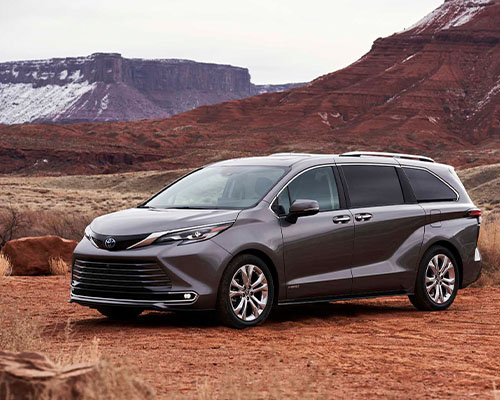
If you’re looking for smaller, simpler vehicles to live in, minivans are excellent options. They can still have a good cargo room, though.
Pros
- There are many affordable used options because they are widely accessible.
- Almost anyone can feel comfortable driving them because they handle them like a car.
- They are suitable for daily driving and get good MPG.
- They require little upkeep.
- There are some AWD options (Toyota Sienna, Chrysler Pacifica, Chevy Astro, GMC Safari)
- They often have folding or removable seats to create a completely flat floor
Cons
- You can fit a single bed, some storage, a refrigerator or cooler, and possibly a small counter or desk in order to accommodate one person.
- Storage must be hung above the bed or built below it because a bed for two people will take up almost the entire floor area. And a fridge or cooler might only fit up front, between the front seats.
- No minivan is tall enough for standing.
- They are not suitable for off-roading due to their low clearance and smaller tires.
- Since almost all minivans have numerous windows, insulation can be more difficult.
5. Truck Bed Shell
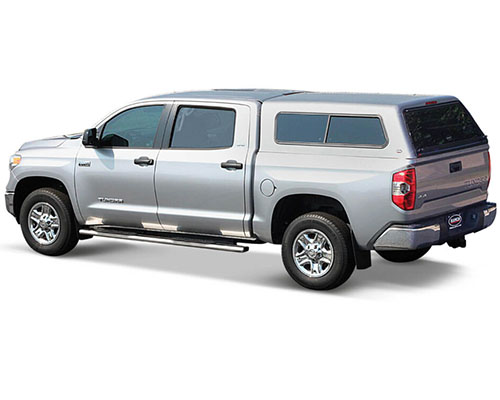
A common smaller option of vehicles to live in is a pickup truck with a hard shell (also known as a canopy or topper). Just bear in mind that a truck bed must be long enough to accommodate your body lying down.
Pros
- Trucks are by far the most prevalent type of four-by-four vehicle. For those looking for the most capable off-road vehicle, they are therefore excellent choices.
- Most towing capacity.
- Much easier to maneuver than RVs and Skoolies
- Easy to find parts and mechanics
Cons
- A small interior height might feel “coffin-like.”
- It’s very difficult to insulate because of the small spaces and thin materials.
- The truck bed can be challenging to enter and exit.
- Some of them don’t have a window that allows you to pass through to get to the topper from the cab.
6. The Car
If you want to travel for any period of time, we do not advise using a reliable car that transports you from point A to point B comfortably. But even so, it is possible to make it work if you want to try living in a van occasionally without purchasing a new car, especially if you already own a station wagon.
Making a bed in the back of the car is simple, and there is storage space under the bed, but eventually, the cramped conditions will become a nuisance.
Pros
- Low gas mileage
- Low profile – Great for stealth camping
- Mobility – you be able to get through small spaces that bigger campers can’t
- Cars are frequently more affordable to buy and maintain than the other options on this list in terms of affordability.
Cons
- Space! Filling your car with only what you need for a weekend trip may be acceptable, but anything longer may be uncomfortable.
- The constant shifting of items from back to front, under the seat, and on the dash will quickly become tiresome.
- Ground clearance – off-road driving and remote campsite access may be limited
- Sleeping – If you are on your own then this might not be too bad but if you have a dog or a partner it could get a little too cozy
- Lack of privacy – Have you ever had to get dressed in a moving vehicle? Not ideal
- Limited Room for passengers – this is especially true if f you have a bed in the back that can’t fold back, which makes your seats useless
7. SUV/4WD
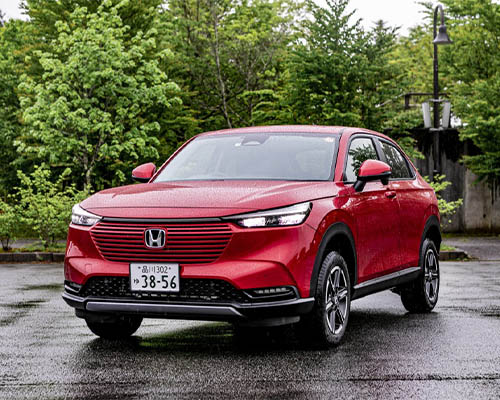
It is quite simple to convert your SUV into a camper as described above, much like the car option. There is only a slight difference in size, which makes it better for outdoor exploration.
Pros
- Great for overlanding
- can blend in, making stealth camping much simpler.
- Great mobility
- Generally cheaper to buy than a camper van and usually easier to maintain
- Better mileage
- Flexible enough to be a family runner, adventure mobile, and a workhorse
Cons
- Space – As with the car space is limited
- You can’t use your backseats – You are probably going to have to take out the back seats to build in your bed or if you can put the seats down flat it’s likely you won’t be removing the bed to use the seats so sorry no hitchhikers
- Moving items back and forth, under the seat, and on the dash will be a constant task for you. This will get tiresome very quickly.
- Sleeping – again it’s possible but it won’t be the comfiest night’s sleep especially if you don’t have curtains that lead onto
- Lack of privacy – Have you ever had to get dressed in a moving vehicle? Yeah it’s not fun
8. Pickup Truck Camper/Trailer
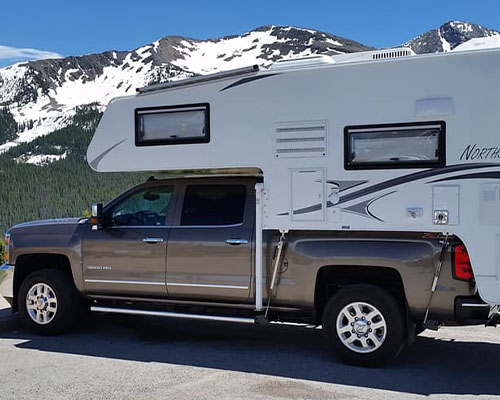
The pickup truck camper is made up of an ordinary pickup truck or ute and an additional camping unit mounted on the vehicle’s chassis. A pop-up camper is an option, allowing the roof to collapse while driving and providing you with the extra space you need when camping.
Pros
- One of the less expensive RV options if you already own a pickup truck is this one, as the camper can be loaded and unloaded as needed.
- No additional insurance premiums or yearly license fees are required for another vehicle.
- This vehicle is adaptable; you can take the truck camper off and leave it jacked up at home or a campground while still using your truck as a regular car.
- It’s compact and has great maneuverability
- Better fuel economy than a larger RV
- Great for off-road and getting down to those special spots off the beaten track, especially if you choose to have a 4×4 pickup truck
Cons
- You cannot simply exit the car and enter your house without first going outside.
- The living space is smaller than other RV options
- The sleeping area is over the cab in most designs and can be a tight space unless you have a pop-up trailer
- Not much room to install a shower and toilet and holding tanks
9. The Unimog
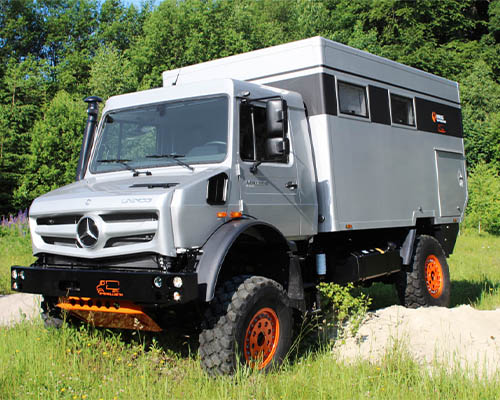
A Unimog—what on earth is that?! That’s what we initially believed when we came across these creatures while traveling. These machines were initially intended to be used as agricultural, mining, or military equipment, but you can now see them being used as off-road campers.
Pros
- Extreme off-road capabilities – in a Unimog, you don’t follow the path, you make the path.
- Built to operate in harsh conditions
- You can help move boulders from one mountain to another
Cons
- These vehicles can range in price depending on mileage and condition, but generally speaking, they are quite expensive when compared to other off-road vehicles.
- You may need a commercial license to drive one
- If the vehicle is pricey it usually means the parts are too
- Due to size international shipping will be expensive and difficult
- Untrue unless you intend to drive over the Himalayas on your way to boulder down the Great Wall of China.
- It is not a fast vehicle – A Unimog makes our Kombi feel like we’re driving a Ferrari
10. The School Bus
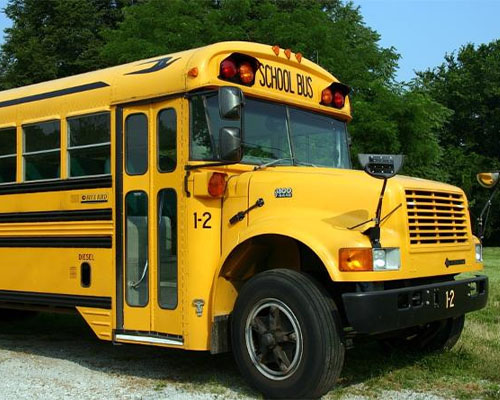
The old converted school bus is a good option if you want space and more of a fixed home. They work best for travel when your trips are brief and you stick to easy trails. Even though you won’t be venturing far from the beaten path in this, it’s a sturdy vehicle and a unique location to put your new house.
Pros
- Space! So much space!
- You will get sung ‘Hail to the bus driver’ to you while you’re driving
- Cheaper than most motor homes and RV’s of the same size
- You can take your whole family on the trip. Perfect if you fancy having 8 kids and still want to live life on the road
- There is a good chance that your parts will be available everywhere there are bus or coach mechanics, which is most of the world.
- It has personality and a cool look!
- Buses are sturdy and long-lasting vehicles.
Cons
- Fuel can be expensive, and locating parts and working on some models can be more difficult.
- Parts a generally bigger and heavier to store and carry around
- Due to size international shipping will be expensive and difficult
- Unless you park near a school, which is kind of weird and creepy, stealth camping is somewhat difficult.
- Kids may wave you down expecting you to take them to school
- Parking will be a pain in the butt
- Limit to where you can drive – You can’t really get to those secluded beaches in one of these things
11. Sedans
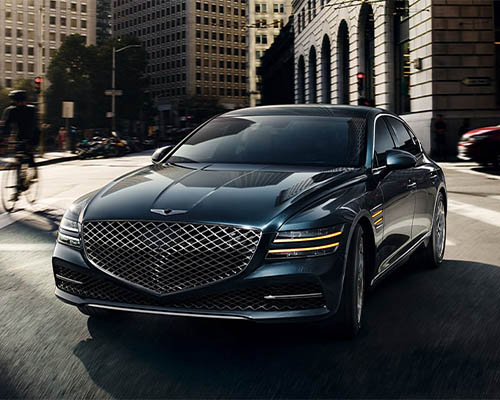
When thinking about the best cars to live in, sedans aren’t typically the first thing that comes to mind. But for those ballin on a budget, you can make it work
I am aware from personal experience. I used to take Emily on camping trips and we would both share my Subaru Legacy. The most recent time we did this was in a rented Nissan Sentra sedan, driving across the nation.
Pros
- Excellent fuel efficiency.
- Cheap to purchase and keep up.
- Anywhere (that is paved) that one can fit or drive.
Cons
- Very little room for conversion and personal items.
- Not the best for off-roading.
- Hard to insulate.
12. The RV: Class A
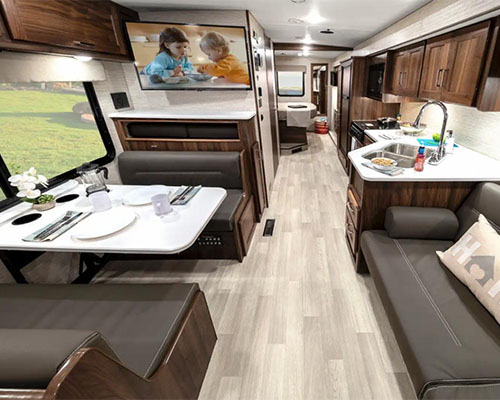
We’ll categorize RVs into three classes: Class A, B, and C because they come in all different sizes, shapes, and designs. Choosing an RV depends on your personal preferences because each class is made to meet specific needs.
These motorhomes are the pinnacle of luxury mobile living and are so similar to buses that you might not even recognize them as vehicles. Since they are typically larger than the typical school bus, it is practically like having a small house on wheels.
Pros
- We’ve seen apartments with less space than this one!
- Everything is included, even a washer and dryer! Imagine that, no more outings to laundromats
- Nothing needs to be installed or built. Everything in this RV is purposefully built for on-road living
Cons
- The price can even reach millions of dollars, almost costing you the same as a small purchase.
- The size: Good luck parking something that can grow to be up to 45 feet long.
- Fuel costs alone can blow your budget if you are planning on doing long trips in this thing
- RV parks can get expensive after a while – there are not as many options for free camping in these things
- Requires a special license to drive in some places
This guide will go over how to wash a car at home and some frequently asked questions about best practices for washing cars in order to assist you in keeping your car clean.
13. The RV: Class B
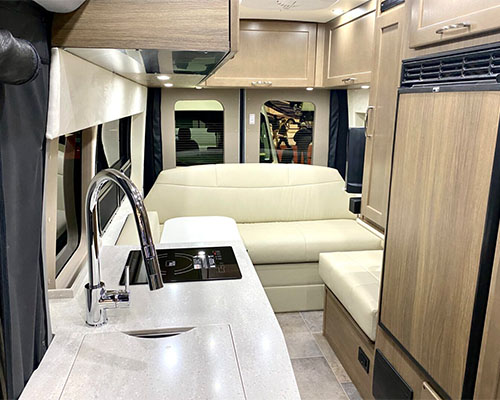
We’re not sure why, but a Class B RV is the smallest of the three categories. It’s a cross between a Class A and Class C RV, and it’s typically constructed on a truck or van chassis. Despite being specifically designed for living, they resemble oversized cargo vans and look quite similar.
Pros
- They are generally the least expensive out of the three
- Purposefully built interior
- More economical than class A and C
- Better maneuverability than its RV brothers class A and C
- And better mileage too
Cons
- Less space than the other two types
- Not as luxurious as the others
- Doesn’t expand
- Some larger-sized Class B vehicles will be expensive and difficult to ship overseas
14. The RV: Class C
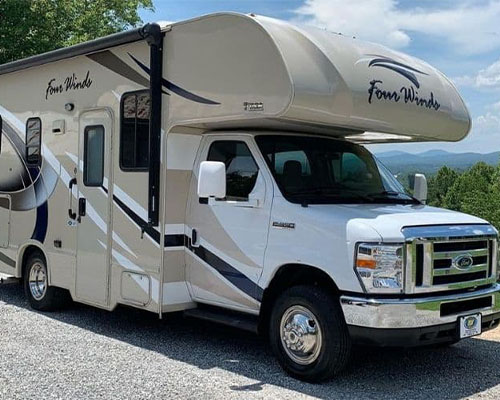
These motorhomes are a cross between a Class A and a Class B and are built on a truck chassis. Unlike the others, the camper portion of the RV crosses the top of the truck’s front end.
Pros
- Better maneuverability than Class A although some Class C’s can be just as big as a Class A
- The smaller models have the advantage of being roomer inside yet can still park at campsites
- Has the power to tow your vehicle unlike Class B
Cons
- Amenities are not as luxurious as Class A
- Some Class C models can be just as big as a Class A therefore too big to park and drive in some places
- Due to size international shipping will be expensive and difficult
Things You Need To Live In Your Car
It’s a significant transition from living in an apartment or a house to living in a car. You’ll need to adjust to having a much smaller living space and spending a lot of time outside the car. To begin, you’ll need a few essential items to keep warm and offer comfort.
Bedding
You can sleep on a camping mattress or pad, but doing so for an extended period of time from the back of your car is probably going to be bad for your spine and the comfort and quality of your sleep.
A good mattress, such as a folding memory foam mattress, is something you should think about purchasing.
While some campers favor sleeping bags, others favor residential-style bedding like sheets and comforters.
You can choose either option, but if the weather is particularly chilly, using both methods may be beneficial.
You can cover your bedding with a 3- or 4-season sleeping bag to keep yourself cozy and warm even if it’s below freezing outside your car – just beware that the condensation from your breath may cause ice to form inside your windshield and windows!
Temperature Control
As with any other car on this list, even if you spend a lot of money on a Sprinter van, you’ll likely need a backup heat source to keep you warm in the winter.
There are numerous options available, though I previously highlighted a few portable heaters and fans.
Cooking
The drastically lower cost of living compared to other forms of housing is one of the main draws of living in a car, so you probably won’t want to blow your budget on expensive meals out every day.
Car-living enthusiasts also favor backpacking stoves like those made by JetBoil.
You should also have food storage options available. To maximize space in your car and keep animals from smelling your food, store your dry goods in airtight containers.
You can use a cooler to keep food from spoiling, but you’ll need constant access to fresh ice to prevent that from happening. As a result, you might want to think about buying a portable fridge that plugs into your 12-volt outlet.
Charging Devices
You will need a dependable way to charge your devices while you live on the road, regardless of whether you use common devices like a smartphone or you need to power a laptop because you work from your mobile office.
You’re good to go if you’ve installed solar panels and an inverter system, but there are less-long-term options you might be interested in.
If that’s the case, you could get by with something as basic as a car power inverter, but the Jackery system is ideal if you’re looking to upgrade.
Remember that if you’re using an inverter plugged into the cigarette lighter in your car, it’s best to use it while you’re driving or when the engine is running to avoid draining the battery.
FAQs
Is It Legal To Live In A Vehicle?
Yes in some places, no in others. There are some localities and cities that have made it illegal to sleep or live in a car. A vehicle, on the other hand, has wheels. If driving a car is prohibited where you live, you can easily move it.
Look into your local laws and ordinances to determine whether living in a vehicle is permitted where you are.
Is It Worthwhile To Live In A Vehicle?
Whatever your motivation for living in a car, the answer is that it is worthwhile.
You can save money by living in your car, travel the country, or just have a secure place to sleep at night.
The Bottom Line
If you decide to go full-time, living in a vehicle can replace your rent payment and save you money on hotel stays. It can also keep you from having to tent camp. Many things need to be taken into account. We briefly discuss the benefits and drawbacks of each vehicle type in our list of the best cars for living in.
One of the most crucial steps to building the comfortable lifestyle that YOU want is selecting the right vehicle to live and travel in.
What would be your best live-in vehicle? Please share below!

